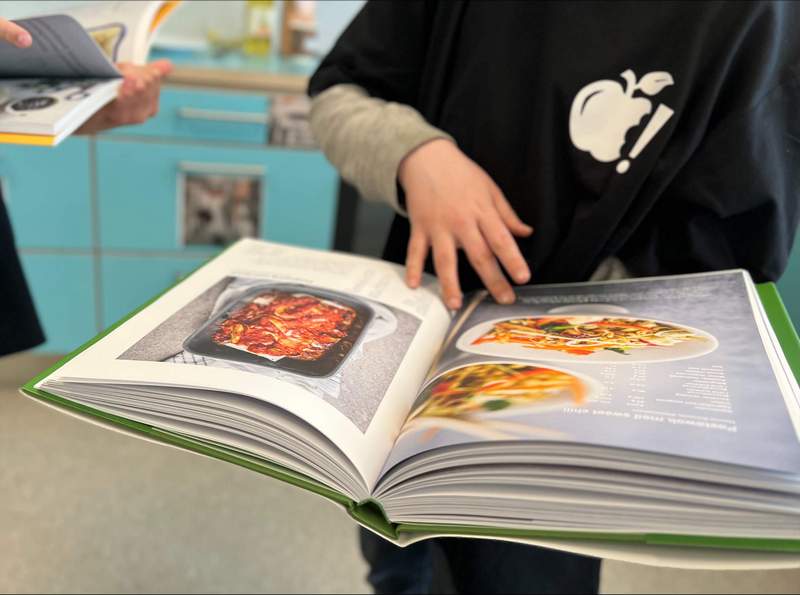
Contents
Learning Outcome Time required Tools or equipment required Summary of the activity What to do Tips how to implement the topic to school curriculumLearning Outcome
Upon completion of this module, participants will understand the importance of engaging students in sustainable school food initiatives through hands-on activities. They will learn how to implement a school food competition, promote student involvement, and foster discussions on sustainable food practices.
Time required
One to two weeks for preparation of the event.
Two to three lessons to prepare students for the competition
90 minutes for the actual cooking
Tools or equipment required
- Kitchen with enough equipment to host a few students cooking teams
- Ingredients to cook from
- Judges to evaluate the dishes
Summary of the activity
SchoolChef4Change aimes to cultivate a sustainable food culture in schools by involving students in a MasterChef-inspired competition.
The initiative comprised semifinals and a final where teams of students prepared plant-based meals, emphasizing minimal food waste.
Preparatory workshops and a live-streamed final engaged students in sustainable food practices. The winning dish can be served across the whole school or implemented into the regular menu of participating schools, and participants receive recognition.
What to do
1. Introduction to the Project:
Objective: Establish a sustainable food culture in schools by breaking down barriers between students and the school restaurant.
Inspiration: Modeled after the TV program MasterChef, one or more schools in the same municipality can initiate the SchoolChef4Change competition.
Competition Structure:
- Semifinals and a final held in the home economics halls of participating schools.
- 40 students, organized into teams of 4, tasked with preparing a full plant-based, sustainable school meal in 90 minutes.
Criteria: Taste, presentation, and minimal food waste.
Judging panel: School personnel, principal, and school chefs from nearby schools.
Final live-streamed for peer engagement.
2. Preparation:
- Provide students with preparatory time to explore recipes and available ingredients.
- Provide workshops on food waste and sustainable food dish composition
Prize:
- Winning dish served in all participating schools on a designated day.
- Participants in the final receive an invitation to the municipality's chef school and a diploma for their involvement.
3. Reflections:
Positive Impacts:
- Contributed to a positive school culture through engagement, education, and a fun activity.
- Facilitated discussions on sustainable food among students, teachers, and staff.
- Enhanced peer involvement through live-streamed events.
Challenges:
- Give yourselves enough planning time.
- Involve teachers and students in very active way
Tips how to implement the topic to school curriculum
The competition contributes to a positive school culture by creating engagement through education and being a fun activity, centered around student involvement and sustainable school meals.
It is a good opportunity for the students to discuss sustainable food with both teachers and other staff. Even those who are involved in the cooking competition themselves get engaged through talking to their classmates and cheering on the participants in the livestream of the final.
